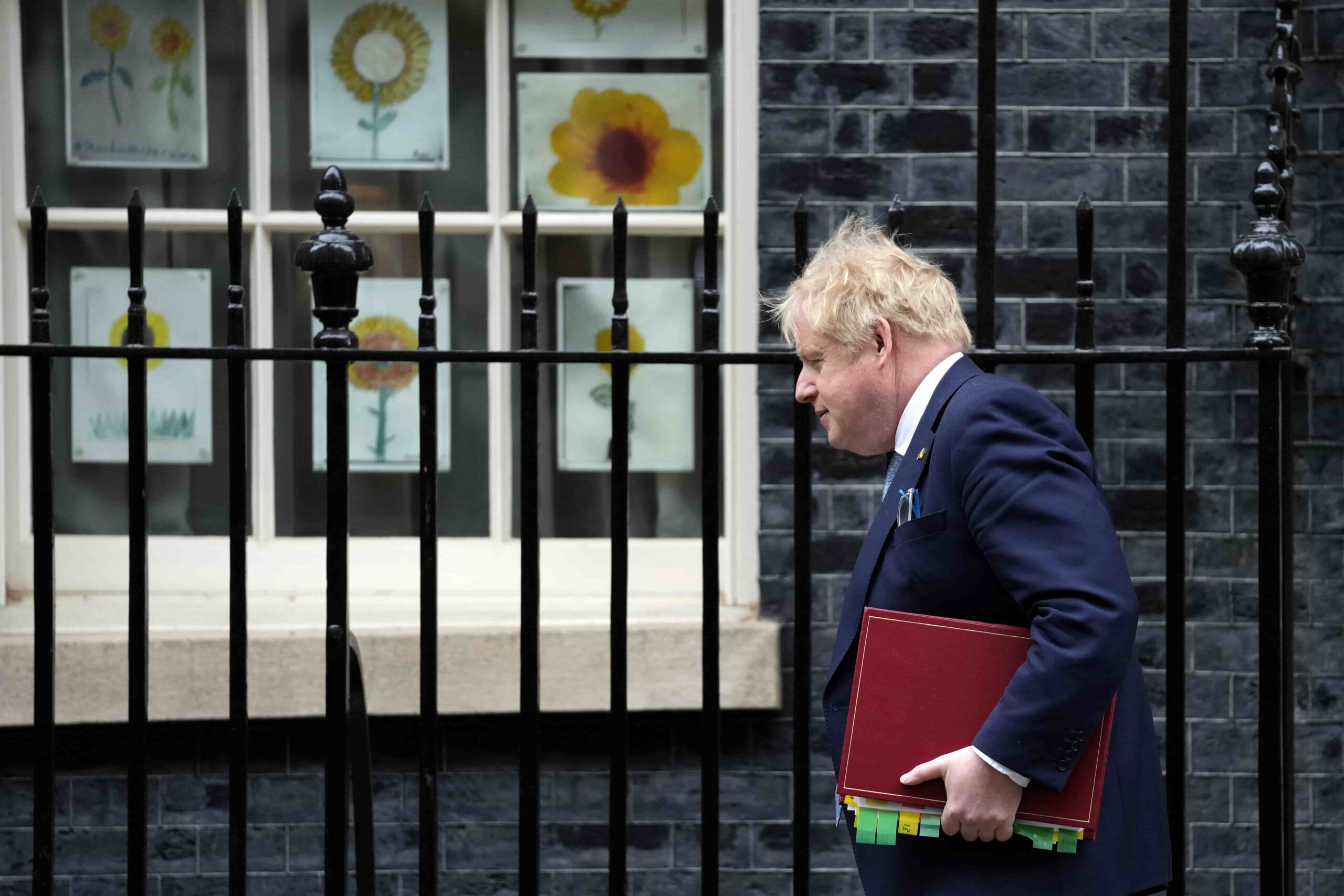The U.K. government announced plans to ban conversion therapy for sexual orientation but not gender identity in a move that has spawned major backlash.
On March 31, Prime Minister Boris Johnson’s government signalled that it would move forward with a conversion therapy ban after initially waffling on the issue. Just hours earlier, his administration indicated that it would backtrack on a 2018 promise from former prime minister Teresa May to outlaw the harmful, discredited practice, which is already illegal in approximately a dozen countries, including Canada.
Government officials framed the transphobic exclusion as a compromise.
“When it comes to conversion therapy, it is absolutely right that we ban the so-called conversion therapy for LGB people,” Health Secretary Sajid Javid told Sky News on April 6. “When it comes to trans, I do think that we need to be more careful.”
Conversion therapy, also known as “reparative” therapy, is based on the false premise that being LGBTQ2S+ is wrong and that an individual’s sexual orientation can be changed through medical or faith-based intervention. The practice, which includes everything from talk therapy to shock treatment, has been condemned by leading groups like the World Health Organization (WHO).
Johnson referred to conversion therapy as “utterly abhorrent” in comments to Britain’s Channel 4 news but claimed there are “complexities and sensitivities” when it comes to regulating treatments on trans youth.
“I don’t think it’s reasonable for kids to [make] decisions about their gender or irreversible treatments that they may have. I think there should be parental involvement at the very least, first thing,” the Conservative leader said, before abruptly switching topics to take aim at trans athletes. “Second thing, I don’t think biological males should be competing in female sporting events.”
“Maybe that’s a controversial thing to say,” he added, “but it just seems to me to be sensible.”
Prior to last week’s U-turn, Johnson had previously floated the idea of allowing religious leaders to continue providing conversion therapy, meaning that “pray the gay away” centres could continue to operate. It’s unclear whether the PM intends to move forward with that loophole.
The U.K. government’s actions have led to major fallout, as well as widespread criticism from political leaders and activists. Stonewall, the U.K.’s leading LGBTQ+ charity, accused Johnson’s administration of sacrificing trans people for “political gain” and said the government’s proposal “is out of step with every other nation that has recently introduced a ban on conversion therapy.”
Iain Anderson, the U.K.’s first LGBTQ+ business champion, resigned as a result of the controversy, calling last week’s announcement “profoundly shocking.” “Trust and belief in the Government’s overall commitment to LGBT+ rights has been damaged,” he said in a letter posted to Twitter.
Amid the ongoing fallout, the U.K. government cancelled Safe to be Me, billed as the country’s first-ever international LGBTQ+ conference. According to U.K. newspaper The Independent, more than 80 LGBTQ+ groups and at least 20 HIV advocacy groups announced that they were boycotting the event in protest of the flawed conversion therapy ban.
Consortium, an umbrella group of LGBTQ+ voluntary and community organizations in the U.K., said in a statement that its members could no longer participate in the conference in light of the government’s views.
“LGBT+ organisations in the U.K. were left with no choice but to withdraw any support in order to stand in solidarity and partnership with our trans siblings and communities,” stated an April 6 post on Consortium’s website. “Trans rights are not secondary to anyone else’s. Trans rights are human rights, pure and simple.”
The U.K. government’s 2017 National LGBT Survey indicates that around 13 percent of trans respondents had been offered or undergone conversion therapy, compared to 7 percent of cisgender respondents. The findings also note that 29 percent of trans people who had conversion therapy were offered it in a medical setting, compared to 15 percent of cis people who had undergone conversion therapy, indicating high levels of medicalized transphobia.
The conversion therapy debacle comes as the Conservative government is ramping up its blatant transphobia. The Equality and Human Rights Commission, the equality watchdog within the U.K. government, published guidance this week that outlined how businesses could ban trans people from single-sex spaces, according to the British queer media outlet PinkNews.
The U.K. government has been discriminating against trans people for years. While government leaders had pledged to update the Gender Recognition Act (GRA) to ease the gender marker correction process for trans people, those long-promised reforms were abandoned in 2020. The government’s leading LGBTQ+ rights panel was disbanded last year after its members supported allowing trans people to self-identify their gender on official documents.


 Why you can trust Xtra
Why you can trust Xtra


